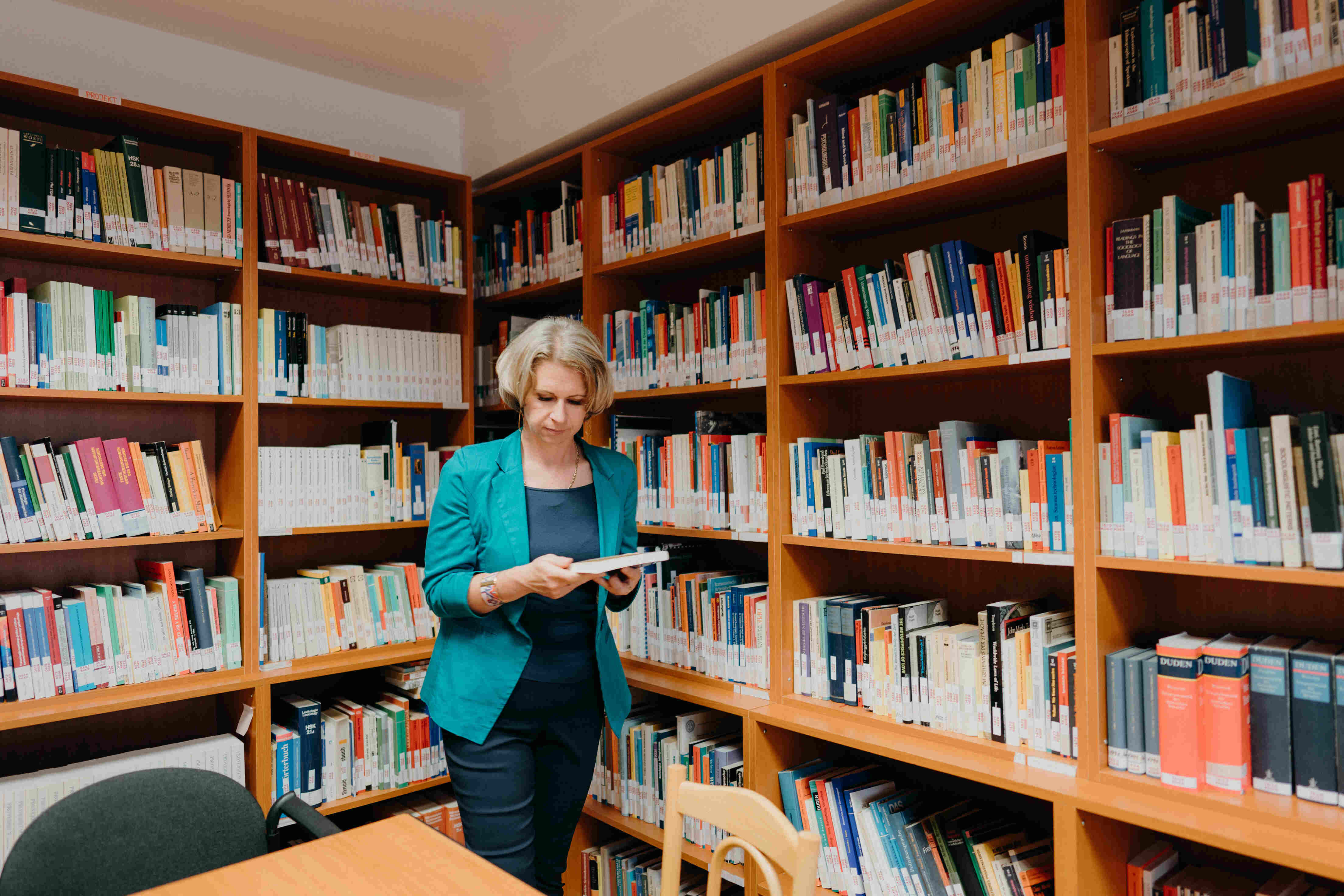
German language and culture in professional communication (Mgr.)


- Field of study: philology
- Form of study: Full-time
- Degree of study: 2., master's
- Length of study: 2 years
- Language of instruction: english and german
1. Knowledge:
The graduate is familiar with the systematic knowledge of linguistic disciplines such as stylistics of the German language, textual linguistics, phraseology of the German language, paremiology, contrastive linguistics, varieties of the German language. At the same time, he has knowledge of the history of German culture and literature, literary-scientific and cultural-scientific methodology. He is familiar with the methods and principles of professional translation, techniques and procedures of interpreting in its consecutive and simultaneous forms.
2. Skills:
The graduate is proficient in the German language studied in oral and written interaction. He/she is competent to formulate scientific problems independently, to think relationally and analytically in the disciplines of the field of study, such as contrastive linguistics, stylistics, textual linguistics, phraseology, and with specific interdisciplinary overlaps into the field of cultural studies and other disciplines (psychology, law, technology, sociology, economics, marketing and information technology) in the context of professional communication. He or she is able to research and formulate professional topics and tasks, consider recommendations, propose optimal solutions, and provide research on theoretical problems and practical aspects related to the German language, linguistics, literature and culture. He/she is able to design and select appropriate procedures and implement them in the solution of professional problems, including the design of projects.
3. Professional competences:
The graduate is proficient in translation strategies and procedures and can apply them in practice, can work with terminological sources, corpora and databases. (Can work with computer programs supporting translation and is familiar with post-editing of texts.) He/she is prepared to carry out research with a high degree of creativity and independence and to evaluate its results, also with professional use of information and communication technologies. He/she is competent to present the results of his/her own scientific observations, analyses, interpretations and generalisations to the professional community in German. He/she can clearly and convincingly promote the results of his/her research to a wider cultural audience.
4. Transferable competences:
The graduate demonstrates a high degree of professional independence and foresight in familiar and unfamiliar environments as a specialist in the linguistic, geopolitical and ethno-cultural area of the German-speaking region in a dynamically changing socio-cultural environment. He/she is familiar with legal and ethical aspects within professions using language interaction. Has developed innovative and creative thinking and a distinct attitudinal-value complex.
The graduate finds employment in practice as:
-
cultural worker in higher territorial units and worker in state and local government organizations (coordinator in contact with foreign clientele in the development of cultural and economic relations with foreign countries)
-
in the preparation of international cooperation projects within small and medium-sized enterprises
-
worker in international companies
-
in tourism
-
in various cultural institutions
-
in the media and other artistic and creative industries.
Do you have questions about the study programme? Ask its main guarantor
prof. Peter Ďurčo , CSc.
: peter.durco@ucm.sk